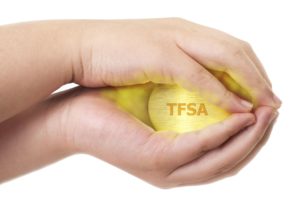 In Part 1 of the articles, I highlighted the importance of choosing a benefactor for your TFSA and the tax outcome with each type. I will continue with the three remaining methods of how to transfer your TFSA upon death.
In Part 1 of the articles, I highlighted the importance of choosing a benefactor for your TFSA and the tax outcome with each type. I will continue with the three remaining methods of how to transfer your TFSA upon death.
Designation of an “Exempt Contribution” by a surviving Spouse/Common-Law Partner who Inherits the Spouse’s TFSA by Bequest.
Another case is where a spouse or common-law partner has not been designated as successor holder or as beneficiary of the spouse’s TFSA, but instead inherits the TFSA from the spouse in a Will. In such a case, the surviving spouse also has the option to contribute and designate all or a portion of the payment as an “exempt contribution” to their own TFSA.
This is true regardless of the holder’s province of residence, but will be especially true in Quebec, in most cases, given that the designation of a successor holder and of a beneficiary is currently only allowed if the TFSA is linked to an annuity contract or insurance policy (segregated funds).
Let us take the case of Julie, who lives in Quebec. Julie is the holder of a TFSA, which she bequeaths in her Will to her husband, Luc. Julie dies at which time the value of her TFSA is $45,000. Income of $1,000 has accrued in the TFSA account since the date of death until the time when the full amount of the TFSA, $46,000, is paid to Luc…
The value of the TFSA of $45,000 at the date of death is not taxable. However, the income of $1,000 earned after the date of death is taxable. This amount of $1,000 is to be included in Julie’s estate but will ultimately be taxed in Luc’s hands under regular trust taxation rules. Luc can contribute the $45,000 to his own TFSA during the rollover period, treat this contribution as an “exempt contribution” by filing form RC240 with the CRA within 30 days following the contribution date. The contribution will have no effect on his unused contribution room. If Luc wanted to contribute all or a portion of the income of $1,000, he received to his own TFSA, this would reduce his contribution room by the same amount.
Designation of an “Exempt Contribution” by surviving Spouse/Common-Law Partner through Intestate Succession.
A spouse may also receive the TFSA following the death of their spouse through the settlement of an intestate succession. In such a case, the surviving spouse also has the option of contributing and designating all or part of the payment received as an “exempt contribution” to their own TFSA, subject to their succession rights and provided that the contribution to their TFSA is made during the rollover period and that form RC240 is filed within the specified time.
Designation of an “exempt contribution” when the transfer of amounts from a deceased spouse’s TFSA is made to satisfy the bequest of a sum of money provided in the Will in favour of a surviving spouse or common-law partner.
It should not be concluded that because a Will does not specifically provide for the bequest of the TFSA in favour of the surviving spouse that the latter may not designate a contribution made to his TFSA as an “exempt contribution” after the death of the spouse. This is in fact what was confirmed in Technical Interpretation 2016-0679751E5 issued by tax authorities on May 11, 2017.
The question asked to the CRA involved determining whether the transfer by the legal representative of the estate (executor/liquidator) of amounts from a deceased TFSA holder to his surviving spouse, to satisfy a specific bequest of a sum of money provided in the Will, meets the definition of “exempt contribution,” if the surviving spouse were to subsequently use the amounts to contribute to her own TFSA.
Such a situation can occur, for instance, when the following facts are found:
Pierre died and was notably the holder of a TFSA in the amount of $45,000. No successor holder was designated for the TFSA and there was no designation of a beneficiary.
Pierre’s Will provided for a specific bequest of $45,000 to his spouse, Christine, and a bequest of the remainder of all his other assets to his daughter, Nicole. Although Pierre’s Will did not provide for a bequest of the TFSA in favour of his spouse, the legal representative of the estate (executor/liquidator), Nicole, agreed to transfer the value of the TFSA in the amount of $45,000 to Christine, the surviving spouse, to satisfy the specific bequest of an amount of $45,000 made by Pierre in favour of Christine under the terms of the Will.
Deceased’s unused contribution room
No contributions may be made to a taxpayer’s TFSA after their death even if contribution room is available. Contrary to an RRSP, where the legal representative of the estate is allowed to contribute to the decease’s RRSP to offset taxes, any unused contribution room when a TFSA holder dies is lost.
However, when death is imminent and a TFSA holder will be leaving a spouse behind, it may be beneficial to take advantage of unused contribution room by contributing the maximum amount to the TFSA before the holder’s death. The surviving spouse will receive a larger [“exempt contribution”] amount which could offset any OAS claw back.
Properly designating the benefactor of your TFSA as a successor annuitant, beneficiary or through a Will is paramount to avoid any unnecessary administrative work for the legal representative of the decease’s estate. Make sure you understand the facts before proceeding.
